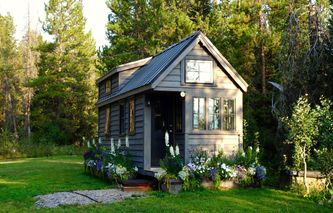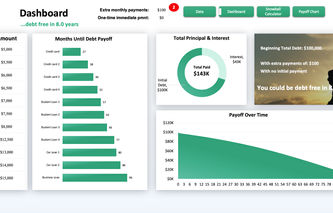Census data from September 2022 suggests that over 1.56 million building permits were issued in just one month. Plus, America’s residential building improvements are estimated to reach a value of over$205 billion by 2023.
Seems like everybody’s building their dream house. But, for some, this dream can turn into a never-ending nightmare of unmet deadlines, expanding the scope of work, and exploding costs.
This article will show you:
The average time to build a house.
Average building time by construction type and region.
A step-by-step timeline of building a house.
Tips to avoid construction delays.
What is the Average Time to Build a House?
It takes approximately 7.2 months to build a single-unit building from start to finish in the US, according to a 2021 report by the US Census Bureau.
On the other hand, it takes an average of 15.4 months to build a residential building with multiple units. You also want to account for the additional month to get your project's building permit and authorization.
Plus, an architect may take 1 to 4 months to draw up the building plan. All in all, you’re looking at approximately one year of commitment before you can move into your new home.
Note that many variables can alter this timeline, including the type of house, where you plan on building it, the construction type, and more. We’re going to break down how each of these factors can affect your home-building journey.
Related questions and answers:
Average Building Time By Construction Type
Here’s a table representing the average building time for US homes, depending on the type and purpose of construction.
SINGLE-UNIT BUILDING | AVERAGE BUILDING TIME |
Built-for-sale homes | 6.5 months |
Contractor-built homes | 9.4 months |
Owner-built homes | 12.1 months |
Source: US Census Bureau So, what causes this disparity in construction timelines?
Built-for-sale homes are referred to as mass-production homes. These homes have the quickest turn-around time because the builders construct a gazillion homes using the same cookie-cutter design. Built-for-sale homes don’t have a personal touch, and are made with the intention of selling. All you’d have to do here is buy a house from a builder.
Contractor-built homes are built slightly quicker, simply because general contractors build homes for a living. These folks know the drill.
Owner-built homes can be classified as custom homes. These homes usually take the longest to build because the landowner (that’s you, be proud!) is involved in the decision-making at every step. Your lack of experience can lead to a longer process. If time is of the essence, you might want to consider buying a ready-made home.
Average Construction Time By Type of Homes
No two homes are the same. But we can predict a rough building timeline based on the type of house you’re constructing.
1. How long does it take to build a tiny house?
Tiny houses are increasing in popularity. According to a recent survey by HomeAdvisor, over 86% of Americans say they would live in a tiny home. These houses are only about 100 to 400 square feet in size and usually take 3–4 months to build. But professionals (like the ones on the show Tiny House Nation) can reduce this timeline to around two months.
2. How long does it take to build a town home?
Town homes are terraced buildings(so you have direct next-door neighbours you can reach by banging on the way—not that we condone this mode of communication).
These structures are built in a row and span a few or even several homes. Town homes can be built as one unit. But they’re commonly built-in groups, with the most common group size being four. And since they share walls with next-door buildings, they can take lesser time to build than traditional homes. The approximate building timeline would be 6–10 months.
3. How long does it take to build a cob house?
Cob homes are unique structures made from straw, clay, and soil (picture a building straight out of “The Hobbit’s” Bag End). These environment and pocket-friendly homes are labor-intensive. They usually take upwards of 15 months to build.
Note
There is no building code for cob structures in the US. This means that your building permits will boil down to your local building department and how they interpret the existing code.
4. How long does it take to build a prefab house?
Traditional homes are built on-site. Prefab or modular houses are built from components constructed in a factory and transported to the site. So it’s basically like building a house with giant Lego blocks.
So, how long does it take to build a modular house? Most prefab homes can be built in 4–6 months from start to finish, much faster than traditional homes.
The 2022 Manufactured Housing Survey pointed out that the demand for manufactured homes increased when home buyers had lesser access to mortgage loans. This is because prefab homes are cheaper to build.
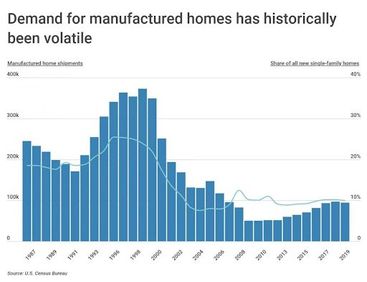
Average Home Construction Timeline by Region
Let’s check out the time it takes to build a house based on different US regions:
REGION | AVERAGE BUILDING TIME |
Northeast | 7 months |
Midwest | 7 months |
South | 4 months |
West | 4 months |
Source: US Census Bureau The building timelines disparity is probably due to the environment and weather conditions. For instance, in the north, you can face construction delays due to the cold and snow.
And because the South doesn’t face these conditions, you’ll enjoy a faster building timeline.
Timeline of Building a House: A Detailed Breakdown of the Steps
You may be wondering: what does it take to build a house? Every home build is unique, but there is a general process of steps that have to happen during construction. We’ve outlined the stages of the home construction timeline to help you visualize what the process looks like.
STEP | DESCRIPTION | TIME TO COMPLETION |
Groundbreaking | The home site is cleared of trees and rocks and leveled. | 1 week |
Foundation and Framing | A footing (concrete base) is laid out. The foundation is added on top of the footing and anchored with bolts. Next, the walls, floors, and roof are framed to support the house structure. | 3 weeks |
Presentational Exterior Work | Exterior finishes, including brick, stonework, and siding, are added. | 1 week |
Mechanical Work | This step involves electrical wiring, plumbing, ventilation, siding, and roofing. | 1 week |
Insulation and Drywall | Insulation and drywall are added to the interior walls. The walls are then primed for painting. | 1 week |
Flooring and Paint | Hard flooring and painting are carried out next. This stage also involves installing cabinets, molding, and trimming. | 2 weeks |
Interior Finishes | Electricians, plumbers, and other subcontractors install finishing touches throughout the home. | 1 week |
Driveways | Driveways and walkways are added next. | 1 week |
Cleanup | Dust and spills are cleaned up. | 1 week |
Landscaping | Sod grass is laid down. Trees and shrubs are also planted at this stage. | 1 week |
Inspection | A building code official will inspect your new home to ensure no violations. | 1 week |
Final Walk-Through | You can tour your house to see if all your expectations are met. | 1 week |
Closing | Once satisfied, you can sign the final documents, finalize financing, and receive your keys. | 1 week |
Note
This approximate 20-week building timeline doesn’t consider processes like buying the plot, hiring a builder, working with an architect, and getting building permits. It also doesn’t account for possible delays.
Main Factors That Affect the Building Timeline
We hinted at potential delays while discussing the approximate construction timeline. Let’s look at what factors cause these delays.
1. Building permits
We mentioned earlier that the US Census data suggests that over 1,564 million building permits were issued in just September 2022.
So, what are these building permits, and how can they lead to delays? A building permit is a legal authorization, granted by the government or regulatory bodies, to construct a building. A permit helps prevent future demolitions, or shutdowns, in case your house doesn’t meet the regulatory standards.
But obtaining these permits can be very time-consuming. This can be because of an overworked inspector, excessive paperwork, or certain restrictions caused by local regulations. It’s vital to expect potential delays in this area and plan accordingly.
2. Your home doesn’t meet regulatory standards
Your engagement with local authorities doesn’t end after you get a building permit. Inspectors will review your home once it’s built.
Often, they find issues that may need you to rework some bits of your home. Apart from an apparent delay, this gives rise to another hurdle. You’ll have to reschedule the crew working on those particular parts of your home.
This could be the framing contractor, roofing company, electrical company, and more. There’s a chance that your construction team has moved on to another project by the time the inspector finds the irregularities. This can set you back significantly on your building timeline.
3. Location, weather, and environment
Where you decide to build your dream house can greatly impact its building timeline. For instance, building in northern regions of the US can take more time than in southern areas because of the weather.
Freezing weather can cause delays in building steps such as curing the foundation, roofing, painting, installing sewer lines, and more. There are also certain environmental concerns you must take into account. A prime example of this is natural disasters and how they impact your building process.
Let’s say you’re planning on constructing your home in Louisiana. One cannot help but think about the devastating effects of Hurricane Ida in 2021.CoreLogic reports that the category four hurricane caused a $75 billion loss in property damage.
Newly built homes in this region must be hurricane-proof. And this process can involve multiple precautions, including installing impact-resistant doors, laminated windows, storm-resistant windows, hurricane shutters, and more. All of this will inevitably delay your building timeline.
4. Subcontractors and workers
Most steps involved in home construction require licensed and experienced workers. You may face scenarios where these workers are unavailable to work on your project.
This issue can happen during busy building times of the year, temporarily delaying your timeline to build a house.
5. Indecisive owners (Ahem…you)
This one may seem obvious, but it’s one of the most common reasons for construction delays. Indecisive owners tend to make things difficult for themselves by:
Changing construction plans halfway through a build.
Altering building material choices.
Postponing key design decisions until the last minute, and more.
Vital Tips to Avoid Construction Delays
We’ve put together a list of tips you can follow to ensure you have the best possible chance of avoiding construction delays.
1. Develop a realistic schedule
All components involved in the construction of a house are interrelated. This is why it’s key to have a realistic plan of action.
But how do you go about it? Jon Sanborn, San Diego Realtor and co-owner of SD House Guys , says,
Start by creating a detailed project schedule. This schedule should include milestones for each phase of the project, as well as deadlines for major tasks. Make sure that you have a clear understanding of the construction process. This will help you identify potential problem areas and plan accordingly.
2. Figure out your budget and stick to it
Knowing what you’re working with financially is wise before you start building your house. A mortgage pre-approval is a great way to establish your budget, so you know what you can afford.
This way, you won’t be swayed by tempting new home features and upgrades. Of course, you won’t be able to lock in your interest rate until the building is complete, since that’s when the loan will go through. But you can still be assured that you’ll be covered when the time comes.
We've created a simple but powerful budget template that you can get started with right away 👇
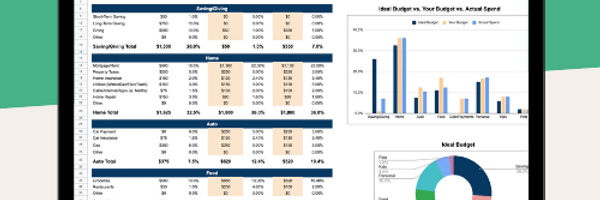
Simple, quick, and easy monthly budget template for Google Sheets and Excel.
With this template, you will get:
Pre-set expense categories
Simplified dashboard and day-by-day monthly tracker
Automated charts for comparison
Day-by-day views for budgets and actual spend

3. Work with a reputable contractor
Another key tip to avoid construction delays is to work with a reputable contractor. A reputed contractor will have tons of experience completing projects on time and within budget. They’ll also provide you with a realistic timeline for building a house, so you can plan accordingly.
Key FAQs on House Completion
Here’s a look at some of the most commonly asked questions on home completions.
1. How long does it take to rebuild a house?
Rebuilding a house can be a great option for someone looking to beautify their space or make it more functional.
According to Statista, remodelling expenditure in the United States amounted to $353 billion in the first quarter of 2021. Here’s a quick look at how long it takes to rebuild or renovate a house.
REMODEL TYPE | DURATION | RENOVATION WORK INVOLVED |
Cosmetic | A few days to three months | Painting, new countertops, basic flooring replacement, etc. |
Medium | Several weeks to six months | Kitchen remodels, adding a fireplace, a new garage, etc. |
Major | Six months to over a year | Foundation repair, structural repair, house lifting, second story addition, etc. |
Source: Legal Eagle Contractors
2. What credit score do you need to buy a house?
Your credit score records how you’ve handled debt in the past. This is why it is important when buying or building a house. The higher your credit score, the lower the mortgage interest rate you’ll qualify for.
This makes your home-building process more affordable. Here’s how much credit score you’ll need to qualify for different loans.
LOAN TYPE | CREDIT SCORE REQUIREMENT |
Conventional loans | 620+ |
FHA loans | 580+ |
VA home loans | 580+ |
USDA loans | 640+ |
Wonder how long it'll take you to pay off your mortgage? We have a template just for that 👇
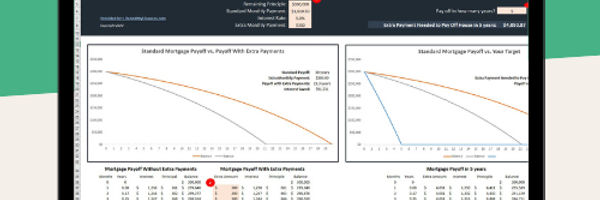
Ready to pay off your mortgage early? This spreadsheet will help you understand what it’s going to take!
With this template, you will get:
Clean and simple with no extra fuss
Fully automated and easy to customize
Future-proofed for any year (be it for 2023, 2024, 2025, or more!)
Works with Excel and Google Sheets

3. How long does it take to build credit to buy a house?
If you have a blank credit history (or a credit score of 0), it could take you as little as a few months. As long as you keep making on-time payments, you should be able to build your credit score quickly.
Note that credit utilization rate and what you’re paying will play a role here.
But what if you have bad credit? If you have bad credit due to non-payment or debt in collections, it may take you much longer to build your credit score. This is because collections, late payments, and bankruptcy, can all last on your credit report for 7–10 years.
Related: How Long Does It Take To Get A 700 Credit Score From 0?
4. How many people does it take to build a house?
A 2020 housing economics study by the NAHB showed that the average new home uses 24 subcontractors from start to finish. 69% of builders use between 11 and 30 subcontractors to build the average single-family home.
5. Is building new worth the wait?
There are pros and cons to building a new house. Some of the advantages are as follows:
Building a house from the ground up can be a more valuable real estate investment, as it lets you implement stylistic choices currently popular in the market.
You can choose to build in safer locations.
Building gives you more power to customize the house to fit your needs.
However, building from scratch also has a few limitations.
The construction process comes with unforeseen expenses.
Depending on the delays you encounter, you may be building for a long time.
Getting the right building permits can be frustrating and time-consuming.
Whether building a home is worth the wait depends on your situation and priorities. We recommend you build a house if your top priorities are customization and avoiding costly repairs.
Key Takeaways
It takes approximately 7.2 months to build a single-unit building from start to finish in the US, according to a 2021 report by the US Census Bureau.
Owner-built homes(12.1 months) take longer to build when compared to contractor-built homes (9.4 months) and built-for-sale homes (6.5 months).
Factors like getting building permits, location, availability of contractors, and indecisive owners, can delay the home-building process.
Developing a realistic new home construction schedule, figuring out your budget in advance, and working with reputed contractors, can help you avoid unnecessary delays.

.jpg)
